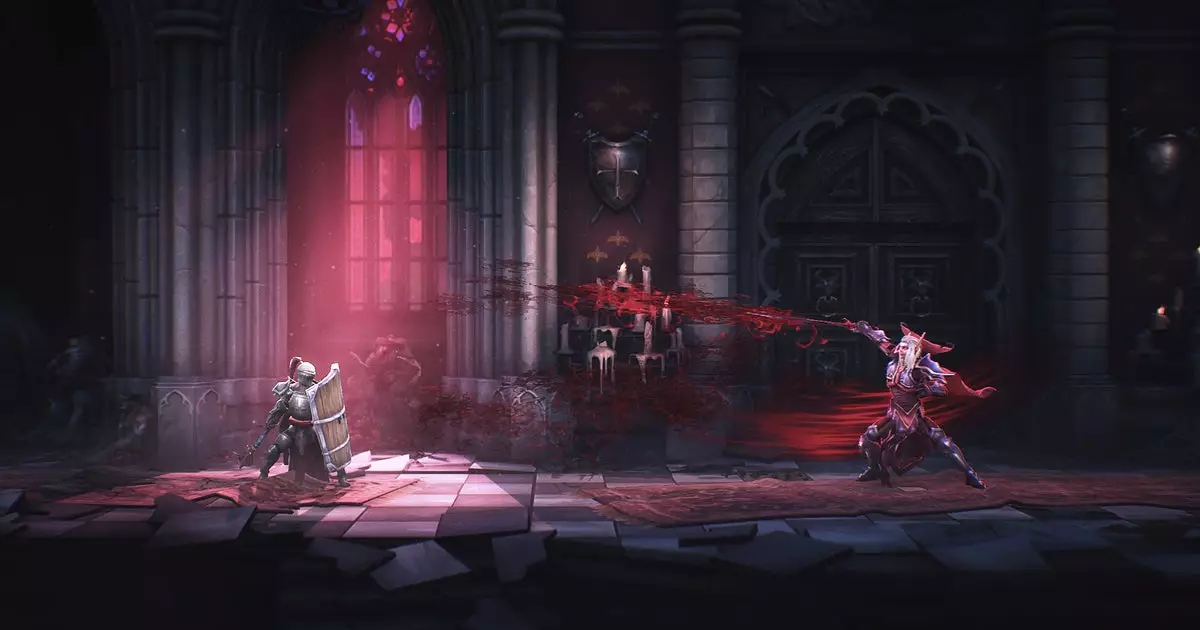In the ever-evolving landscape of video gaming, certain genres emerge only to evoke a mixture of excitement and skepticism among players and critics alike. One of the latest entrants in this realm is *Mandragora: Whispers Of The Witch Tree*, a creation by Primal Game Studio that combines the intriguing concept of 2.5D graphics with the challenging gameplay associated with Souls-like games, often referred to collectively as “Soulsvania.” While terms like these may lack formal recognition, their practicality serves to position the game within contemporary trends and player expectations.
*Mandragora* sets itself apart immediately through its bold artistic choices and atmospheric design. The world teeters on the edge of surreal gothic beauty and grotesque horror, featuring nightmarish creatures that players can confront with an arsenal of skills — from electrifying strikes to fiery annihilations. However, the critique lies in how we categorize such games. The terminology can often dilute the meaningfulness of player experiences, and this has left a smudge on the game’s otherwise invigorating premise. Still, within the chaos of new linguistic creation, there is an undeniable sense of anticipation surrounding the title.
What truly elevates *Mandragora* beyond mere mechanics is the involvement of Brian Mitsoda, whose legacy in storytelling for video games, particularly his role in *Vampire: The Masquerade – Bloodlines*, cannot be overstated. His direction and narrative crafting within *Mandragora* promise a rich, immersive experience that resonates emotionally with players. The narrative framework he provides is not just a background to the gameplay; it adds layers of complexity and depth to the player’s journey, offering choices that shape not only the protagonist but the world around them.
The thematic essence of *Mandragora* is entrenched in a world overtaken by creatures of the night, stripping away joy and freedom from mankind. Pitched as a battle against darkness and ignorance, players are thrust into a struggle that feels both personal and universal. This narrative speaks to contemporary issues of societal collapse and repressed desires, intertwining real-world dilemmas with fantastical elements. Mitsoda’s involvement adds credibility here, as he aims to craft characters that transcend the clichéd tropes often found in genre narratives.
Visually, *Mandragora* commits to its aesthetic with painterly backdrops that evoke a sense of decayed beauty. This choice not only complements the grotesque nature of the nightmarish creatures players encounter but also creates an immersive atmosphere that pulls players into its world. Each scene is deliberately crafted to evoke emotional reactions, immersing the player in a hauntingly beautiful environment that complements the dark narrative.
Coupled with these visual elements are the gameplay mechanics designed to engage players both emotionally and intellectually. The inclusion of character classes and intricate skill trees implies a rewarding depth to gameplay diversity. Players will navigate not only labyrinthine paths and sinister shadows but also a complex web of choices that define their playstyle. The introduction of a travelling caravan adds a strategic layer to crafting and resource management, allowing players to personalize their journey uniquely.
However, *Mandragora* does invite scrutiny regarding difficulty balance, especially with monstrous adversaries appearing somewhat resilient based on initial footage. This raises the question of how to maintain engaging gameplay without tipping over into frustration, a balance critical to the Souls-like experience.
As the April 17th release date approaches, excitement swirls within the gaming community. Can *Mandragora* live up to its ambitious narrative and gameplay aspirations? Or will it fall prey to the very oversaturation and trends it attempts to engage with? The early impressions suggest a blend of powerful storytelling and artistically striking visuals, promising a unique experience for fans of dark fantasy games. Let us hope that when we finally journey through Faelduum, it resonates as deeply in practice as it does in concept.


Leave a Reply